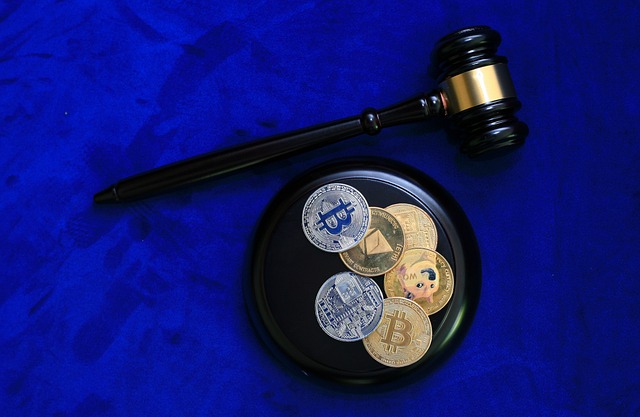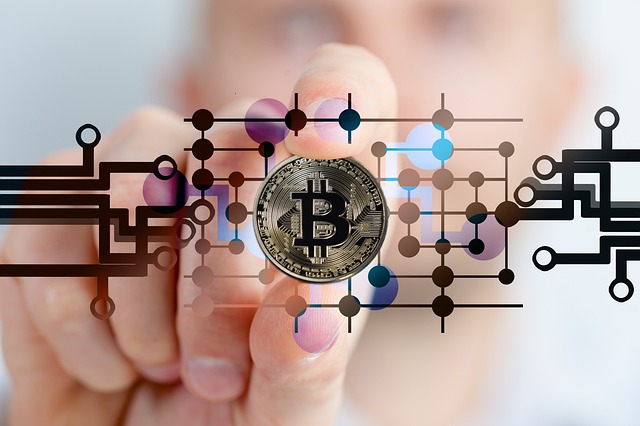The Decentralized Finance Revolution: A Deep Dive
The Decentralized Finance Revolution: A Deep Dive

What is Decentralized Finance?
Decentralized Finance, also known as DeFi, refers to the concept of using blockchain technology to create a more open and inclusive financial system. Unlike traditional finance, which relies heavily on intermediaries such as banks and other financial institutions, DeFi aims to eliminate these intermediaries and create a peer-to-peer network where users can transact directly with each other. This has the potential to revolutionize the way we think about and interact with money.
At its core, DeFi is built on the principles of transparency, accessibility, and trustlessness. By leveraging smart contracts and decentralized applications, DeFi platforms enable individuals to access a wide range of financial services, including lending, borrowing, trading, and investing, without the need for a central authority. This not only reduces the barriers to entry for individuals who may not have access to traditional banking services, but also allows for greater control over one’s own finances. With DeFi, individuals can be their own bank, managing their funds in a decentralized and secure manner.
The Advantages of Decentralized Finance
Decentralized finance (DeFi) offers several advantages that make it an attractive and innovative alternative to traditional financial systems. Firstly, DeFi eliminates the need for intermediaries such as banks or financial institutions, allowing individuals to have direct control and ownership over their assets. This peer-to-peer nature of DeFi ensures that users can transact and interact with each other without relying on a centralized authority, which not only reduces costs but also enhances security and privacy.
Moreover, DeFi promotes financial inclusion by providing access to financial services to those who are underserved or unbanked. Unlike traditional institutions that require extensive documentation and credit history, anyone with an internet connection can participate in DeFi. This means that individuals in developing countries or remote areas can engage in various financial activities, such as lending, borrowing, or earning interest, without the need for a physical presence or geographical limitations. By removing barriers to entry, DeFi empowers individuals to take control of their financial future and contribute to economic growth and prosperity.
How Decentralized Finance Works
In decentralized finance, also known as DeFi, the traditional intermediaries like banks and financial institutions are cut out of the equation. Instead, DeFi operates through blockchain technology, enabling direct peer-to-peer transactions and removing the need for a trusted third party.

At its core, DeFi relies on smart contracts, which are self-executing agreements stored on the blockchain.

The Role of Blockchain Technology in Decentralized Finance
Blockchain technology plays a pivotal role in decentralized finance (DeFi) by providing a secure and transparent platform for financial transactions. With its decentralized nature, blockchain eliminates the need for intermediaries such as banks or other financial institutions. Instead, transactions are verified and recorded on a distributed ledger, accessible to all participants. This transparency not only promotes trust among users but also ensures that the system is free from manipulation or fraud.
The use of blockchain in DeFi also enables programmable smart contracts, which automate the execution of agreements once certain predefined conditions are met. This feature allows for the development of various financial applications, including lending, borrowing, and decentralized exchanges. Smart contracts offer efficiency and speed by eliminating the need for manual intervention and reducing the time associated with traditional financial processes. Furthermore, as blockchain networks operate on a peer-to-peer basis, they can facilitate fast and cost-effective transactions, particularly for cross-border payments. Overall, blockchain technology is revolutionizing the financial landscape by enabling the creation of an open, accessible, and inclusive financial system.
The Potential Disruptions of Decentralized Finance
Decentralized finance, or DeFi, has the potential to disrupt traditional financial systems in several ways. One of the key disruptions is the removal of intermediaries. In traditional finance, intermediaries such as banks or payment processors play a central role in facilitating transactions. With DeFi, these intermediaries are removed from the equation, allowing for direct peer-to-peer transactions. This not only reduces transaction costs but also eliminates the need for trust in a centralized authority.
Another disruption that DeFi brings is the democratization of financial services. In traditional finance, access to financial services is often restricted to those who meet certain criteria, such as having a certain income level or collateral. DeFi, on the other hand, is open to anyone with an internet connection. This means that people who are unbanked or underbanked can now access a wide range of financial services, such as lending, borrowing, and investing, without the need for a traditional bank account. This has the potential to empower individuals and communities who have historically been excluded from the formal financial system.
Popular Decentralized Finance Platforms and Projects
Uniswap: Uniswap is one of the most popular decentralized finance platforms that allows users to trade ERC-20 tokens directly from their wallets. It operates on the Ethereum blockchain and uses an automated liquidity protocol. Uniswap has gained popularity for its ease of use and low fees, attracting both retail traders and institutional investors. With its simple and intuitive interface, users can easily swap tokens without the need for a central intermediary.
Chainlink: Chainlink is a decentralized oracle network that enables smart contracts on various blockchains to securely connect with external data sources and APIs. It serves as a bridge between on-chain and off-chain environments, providing reliable and tamper-proof data inputs for blockchain applications. Chainlink’s decentralized approach ensures that the data fetched from external sources is accurate and transparent, enhancing the reliability and trustworthiness of smart contract execution. This platform has gained significant traction in the decentralized finance space and is widely used for various applications, including decentralized lending, insurance protocols, and prediction markets.
• Uniswap is a popular decentralized finance platform for trading ERC-20 tokens directly from wallets
• It operates on the Ethereum blockchain and uses an automated liquidity protocol
• Uniswap is known for its user-friendly interface and low fees, attracting both retail traders and institutional investors
• Users can easily swap tokens without the need for a central intermediary
• Chainlink is a decentralized oracle network that connects smart contracts with external data sources and APIs
• It acts as a bridge between on-chain and off-chain environments, ensuring reliable and tamper-proof data inputs
• Chainlink’s decentralized approach enhances the reliability and trustworthiness of smart contract execution
• The platform has gained significant traction in decentralized finance, being used in lending, insurance protocols, prediction markets
The Risks and Challenges of Decentralized Finance
Decentralized finance, or DeFi, is undoubtedly an exciting and innovative development in the financial world. However, like every new venture, it comes with its fair share of risks and challenges. First and foremost, one of the key concerns is the vulnerability of smart contracts. While they offer the advantage of automating transactions without intermediaries, any vulnerability in the code can lead to catastrophic consequences. Hackers are always on the lookout for weaknesses in the system, and any successful attack could result in significant financial losses for individuals and even entire platforms.
Another challenge that DeFi faces is scalability. As the popularity of decentralized finance continues to grow, the existing blockchain infrastructure may struggle to keep up with the increasing demand. This can lead to slower transaction speeds and higher fees, ultimately hampering the overall user experience. Additionally, the lack of regulation and oversight is a double-edged sword. While it allows for greater financial freedom and democratization, it also opens the door to potential scams and fraudulent activities. Without proper regulatory frameworks in place, it may be challenging to combat these issues effectively.
Regulatory Considerations for Decentralized Finance
Regulatory considerations play a crucial role in the development and adoption of decentralized finance (DeFi). As the popularity of DeFi continues to grow, regulators are grappling with the need to strike a balance between fostering innovation and ensuring consumer protection. One of the key challenges faced by regulators is the decentralized nature of these platforms, which do not have a central authority or governing body. This creates a unique set of considerations that traditional regulatory frameworks may struggle to address.
One of the primary concerns for regulators is the potential for financial crimes, such as money laundering and fraud, within the DeFi space. The pseudonymous nature of transactions and the absence of strict identity verification procedures make it challenging to trace illicit activities. Additionally, the lack of centralized control means that there is no single entity responsible for implementing and enforcing regulatory measures. This poses a significant challenge when it comes to monitoring and enforcing compliance with existing financial regulations. Regulators are actively exploring ways to address these concerns while still allowing for innovation and growth in the DeFi ecosystem.
The Future of Decentralized Finance
As the world continues to embrace decentralized finance, the future looks promising for this innovative financial system. With its ability to revolutionize traditional banking and eliminate intermediaries, decentralized finance is set to empower individuals on a global scale. The potential for greater financial inclusivity and access to services is undeniable, as anyone with an internet connection can participate in this open and transparent ecosystem.
One key aspect of the future of decentralized finance is the increasing adoption of blockchain technology. With its immutability and security, blockchain serves as the backbone of decentralized finance, enabling secure and efficient transactions. As more businesses and individuals recognize the benefits of this technology, we can expect to see a surge in the development of decentralized finance platforms and projects.

How to Get Started with Decentralized Finance
To start your journey into decentralized finance, the first step is to familiarize yourself with the concepts and principles that underpin this innovative ecosystem. Decentralized finance, or DeFi for short, refers to the use of blockchain technology to recreate traditional financial workings in a decentralized manner. This means that transactions, lending, borrowing, and other financial activities can take place without the need for intermediaries like banks or brokers.
Next, you’ll need to set up a digital wallet to store your cryptocurrencies, as most decentralized finance activities are conducted using digital assets. There are various types of wallets available, including web-based wallets, mobile wallets, and hardware wallets. It’s important to choose a wallet that prioritizes security and offers an intuitive user interface for ease of use.
Once you have your wallet set up, you can explore different decentralized finance platforms and projects that align with your financial goals. These platforms offer a range of services, such as lending and borrowing, yield farming, decentralized exchanges, and more. It’s essential to conduct thorough research and evaluate the risks associated with each platform before engaging in any financial activities.
Remember, decentralized finance is still a relatively new and evolving space, so it’s crucial to stay informed about the latest developments and advancements. Educate yourself about the risks involved, such as smart contract vulnerabilities and market volatility, and only invest what you can afford to lose. As you delve deeper into decentralized finance, you’ll gain a better understanding of its potential benefits and challenges, and how it can shape the future of finance.
What is Decentralized Finance?
Decentralized Finance, or DeFi, refers to a financial system that operates on a decentralized network, typically using blockchain technology, allowing users to engage in various financial activities without relying on traditional intermediaries like banks or financial institutions.
What are the advantages of Decentralized Finance?
Decentralized Finance offers several advantages, including greater financial inclusion, lower fees, increased transparency, enhanced privacy, improved accessibility, and the ability to participate in novel financial opportunities.
How does Decentralized Finance work?
Decentralized Finance works by utilizing smart contracts on a blockchain. These smart contracts automatically execute financial transactions and agreements without the need for intermediaries. Users can interact with these smart contracts through decentralized applications (dApps) to borrow, lend, trade, invest, and more.
What is the role of Blockchain Technology in Decentralized Finance?
Blockchain technology underpins Decentralized Finance by providing a transparent and immutable ledger of all transactions. It ensures security, trust, and eliminates the need for intermediaries. Blockchain enables the creation of smart contracts and allows users to have full control over their funds.
What disruptions can Decentralized Finance potentially bring?
Decentralized Finance has the potential to disrupt traditional financial systems by challenging the dominance of banks, reducing reliance on intermediaries, and democratizing financial services. It can also enable new types of financial products and services that were previously not feasible.
What are some popular Decentralized Finance platforms and projects?
Some popular Decentralized Finance platforms and projects include MakerDAO, Compound, Uniswap, Aave, and Synthetix. These platforms offer various services like decentralized lending, borrowing, stablecoins, decentralized exchanges, and synthetic assets.
What are the risks and challenges of Decentralized Finance?
Decentralized Finance also comes with risks and challenges, such as smart contract vulnerabilities, potential hacks, lack of regulation, market volatility, and the complexity of navigating decentralized platforms. Users should exercise caution and do thorough research before participating.
Are there any regulatory considerations for Decentralized Finance?
Yes, regulatory considerations for Decentralized Finance are still evolving. Different jurisdictions have different approaches to regulating DeFi. It is important to stay informed about the legal and regulatory landscape in your country and ensure compliance with any applicable regulations.
What does the future hold for Decentralized Finance?
The future of Decentralized Finance looks promising. As the technology matures and awareness grows, we can expect increased adoption, innovation, and integration with traditional finance. However, challenges like scalability, regulatory frameworks, and user experience need to be addressed for widespread adoption.
How can I get started with Decentralized Finance?
To get started with Decentralized Finance, you can follow these steps: 1. Educate yourself about DeFi concepts and technologies. 2. Set up a digital wallet to securely store your cryptocurrencies. 3. Research and choose a reputable DeFi platform or project that aligns with your financial goals. 4. Start with small investments or transactions to familiarize yourself with the platform. 5. Stay updated with the latest news and developments in the DeFi space to make informed decisions.
Todays Featured Product:
Buy, exchange and grow your crypto securely with a Ledger hardware wallet, combined with the Ledger Live app. It’s never been easier to keep your crypto safe and accessible. Buy direct from Ledger.com and get todays Special Offers Here.




